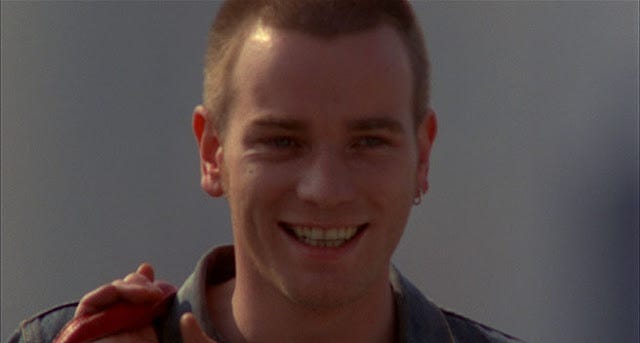Trainspotting Close-Up (Closing Sequence)
Narrative
Bird eye view shot, they are all together, they are literally all in the sae boat but then we cut to a close up of our protagonist as we are shown that he is the one who is going to take a different path to the rest of his ‘friends’.
The music is more representative of the new Renton, not the old Renton.
The camera is much more still with there being composed frames and the camera is still. There is also a slower pace of editing this is clever because a lot of films would increase the pace of the film whereas Trainspotting decreases the pace.
Him facing the mirror, shows him literally facing his reality.
Turning point, when he pours the alcohol away and fills the glass with water, it is nourishing and showing this shift and his changed life he is going to continue to live.
In the last bit of this sequence he is literally crossing a bridge which is metaphorical of him starting his new life (walking the wrong way). This very extreme long shot and then there is this shot which is shot from a long way away but zoomed in on Rentons face which puts us closer to him as he moves towards the camera, like we are literally going into his head.
The blurred screen relates to him forming into he rest of the society as he states that he is going to ‘choose life’
Lyrical poetic quality, especially this bit at the end it is almost like the lyrics of a song
Coda at the end of the film, of Spud as he opens the safe of money this has been done because Renton is the hero in this film, he as ripped off his ages especially spud and it shows Renton in a slightly redeemed way as he gives the portion money that was Spuds to him
Ideology
Film opens with Rentons narration which explains his rejection of stereotypical western values, the capitalist norm . The acquisition of wealth in order to increase your own comfort which we are brought at to believe.
At the end through his journey through the film he rejects what he previously haughty and he aspires to all of the things he at the beginning rejected. Is this maybe an expression of nihilism or is it a condemnation of this nihilist attitude, when he grows an learns he accepts what we as a society generally aspire to


